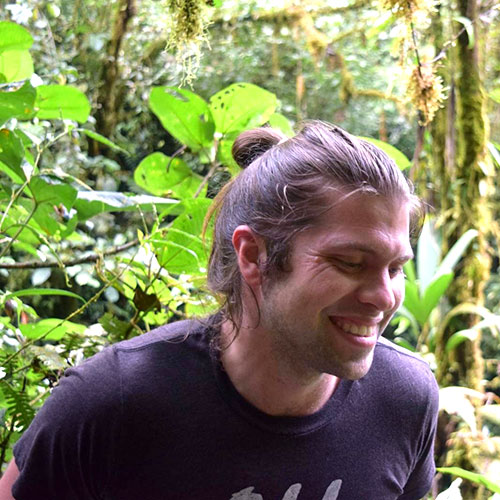LET’S DO LUDDISM
★ ★ ★ ★
WE ARE THE EMPIRE, TOO

By Cory Massaro
This all happened about six years ago. It happened once, but it also happened many times. It is still happening to someone.
I wake up in my hatchback, which is where I live. I have crammed a futon along the passenger side, across the folded back seats, and my legs dangle over the front seat when I sleep. I have become outstandingly flexible from sleeping this way. I dress carefully, under my blanket. The caution is unwarranted, as no one’s outside this early on a Saturday.
At the time, I am working as a software engineer at one of Silicon Valley’s biggest tech companies. My car isn’t the only one doubling as a bedroom in the Valley. In tech campus parking lots, along neighborhood roads, and in the middle of shopping centers, you can find vans and RVs ensconced at odd hours. Curtains in the windows are a giveaway. Many of my colleagues, left comfortably debt-free by generational wealth, shuck a third or a half off their salaried stacks to make rent. Student loans are my excuse for inhabiting a car. And the Valley’s least privileged workers take to “alternative living” out of absolute necessity—it’s not uncommon to see someone wake up in their car in a grocery store parking lot, then go to work at that same store.
I risk a morning piss in a plastic bottle. I stroll a few blocks down the street, watching the city awaken, then double back in time for the coffee shop to open. Coffee in hand, I take the train to Palo Alto.
I call a software friend to rant. My rant is like this:
When hegemonic powers find a place ripe for exploitation, they terraform the land and mold the people’s psyches. Joseph Conrad called out the Congolese ivory industry’s lurid drumbeat. His contemporary, Roger Casement, documented the Amazon rubber boom’s parallel depredations. Yet the capitalist miracle elixir of today is not ivory or rubber, but our attention; today’s extraction is accomplished not by Brits in boats, but by a vast and inscrutable surveillance network of smart phones and social sites which we, the surveilled, consent to. And though the Technological Empire may not displace its subjects so violently as its British or Spanish forebears, we subjects nonetheless find ourselves without place. We are pushed into cars, onto the streets, away from community, out of our minds, and the closest thing to solace lives in screens.
My software friend is quick to rebut with this:
People have more stuff now. Technology is good. And after all, you and I are helping make this happen; we’re the Empire, too. How can we complain?
The train stops at University Avenue, which is a long strip of chain coffee places, independent coffee places, drug stores, restaurants, and specialty retailers with such unprofitably specific niches that they’ve got to be money laundering fronts—nobody’s buying those rugs. People fly signs and ask for a few bucks on every corner. The police are gentler here than in other parts of the Valley; they don’t round people up and destroy their belongings like they do in downtown San Jose. Perhaps they wish to foment a pleasant shopping experience.
And indeed, I’m going shopping, too. As I head down the street, I’m accosted on the sidewalk outside a storefront. A telepresence device trundles up and stops with a whiplash jerk about two and a half feet from my face, a distance apparently calculated to be precisely uncomfortable. The device is like a Roomba with two long, straight stalks growing vertically out the back. The stalks support a wide monitor. The monitor turns on and a young man’s face appears. “Hi! Where do you live?” He smiles.
I just say, “Palo Alto,” for lack of a better answer. He launches into a pitch about how great it is to be able to live anywhere in the world—he’s in Hawaii—and how all the sales representatives get to live that way. I peek inside the store, where ten or fifteen similar devices are bumbling into each other like slow go-karts or round hamsters. This is what they sell. “We’re all over the place,” he says. Whenever I shift my weight, the little Roomba wheels launch into a quarter-turn, jolting with chicken-head accuracy to maintain that same uncanny two and a half feet of almost-personal space.
I don’t really want to explain my whole situation, so I just mumble, “I don’t have room for one of these; gotta go!” and skirt around him, or around his screen. As I circle about, the device rotates to follow me, about thirty degrees at a time. The monitor wobbles as the wheels abruptly, mortifyingly twitch themselves into place, and the face on the screen oscillates between true color and photo negative.
Later, I spend the evening in the same coffee shop I started the day in. I tip well, check emails, and charge my electronics. I move my car and hunker down for the night, reading by the light of a portable lamp.

Cory Massaro is a native of Ohio, U.S.A., now at home in Quito, Ecuador. He spends his time learning languages, writing, playing music, coding, and propagandizing. He actively opposes materialism, consumption-as-cultural mandate, and all forms of hegemony. He is in favor of small, robust communities and gently destroying hierarchies wherever he goes. His fiction and poetry draw on the grievances he has stored in his heart since working in technology; his dearest hope is to predict accurately how egalitarian, worker-centered societies will revive the oral tradition to weather the climate wars.
























For some reason this seems like the epitaph for the American Dream. I toast your indomitable spirit, though. Cheers,
Hi, Tim, thanks for reading and thanks for your note!
I’ve thought a lot about this American Dream deal! I certainly grew up hearing about it, but in my lifetime, it’s been easy to write that dream off as something that was never real (and never worth having in the first place!). I think that’s now a pretty widespread view. I do wonder when that shift in popular discourse occurred and how common experiences like mine are.
I loved this. I rent in Palo Alto at the moment and everything rings true. It’s dystopian and pleasant at the same time. Outside my townhouse the road is flanked with people living in vans and working in the valley. This paragraph is stunning, ‘today’s extraction is accomplished not by Brits in boats, but by a vast and inscrutable surveillance network of smart phones and social sites which we, the surveilled, consent to. And though the Technological Empire may not displace its subjects so violently as its British or Spanish forebears, we subjects nonetheless find ourselves without place. We are pushed into cars, onto the streets, away from community, out of our minds, and the closest thing to solace lives in screens.’
The way you describe the monitors, and the “almost-personal space” feels accurate, and wildly invasive. I live in San Jose, but have seen the Palo Alto environment you write about. We are the empire, too. A fitting title.